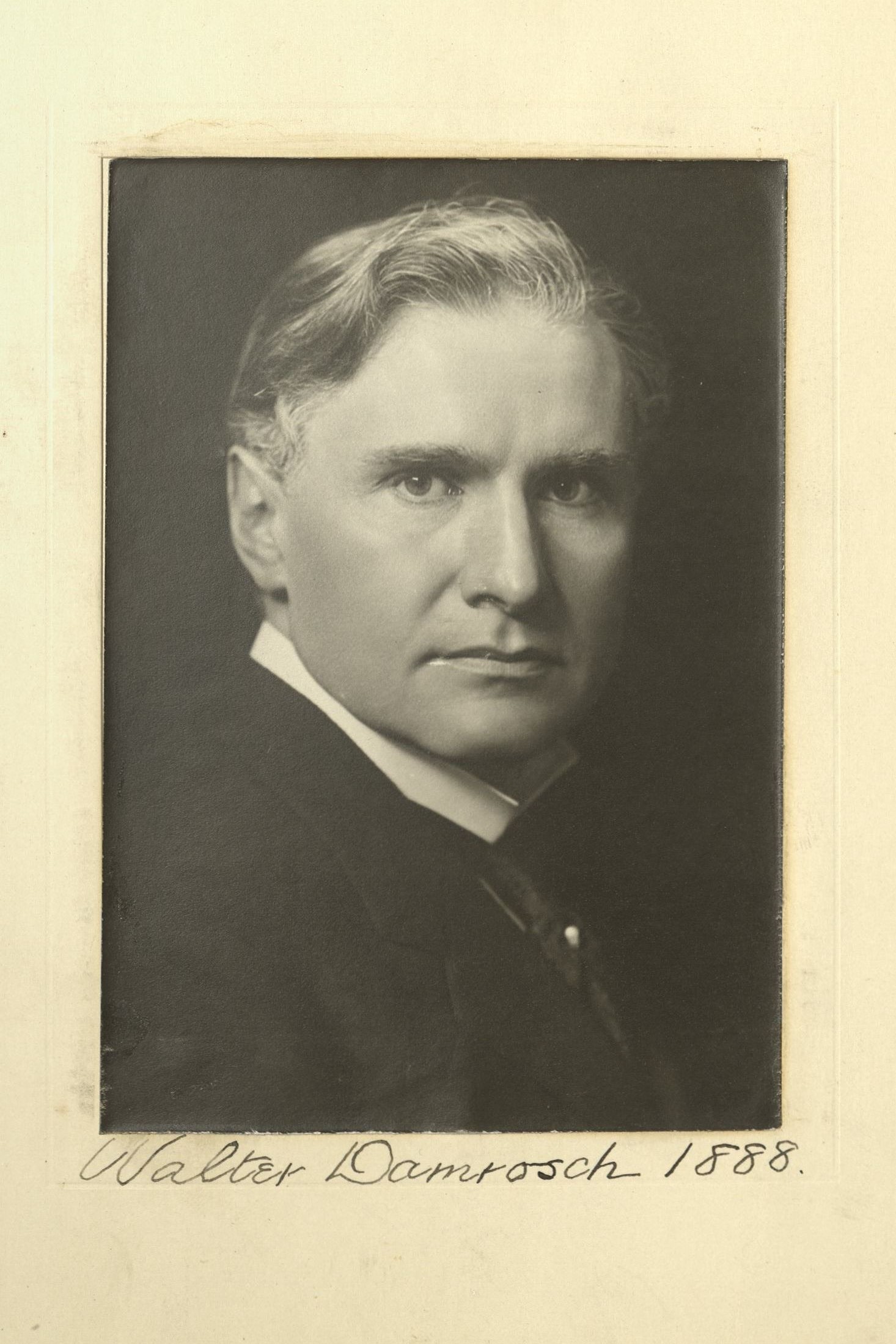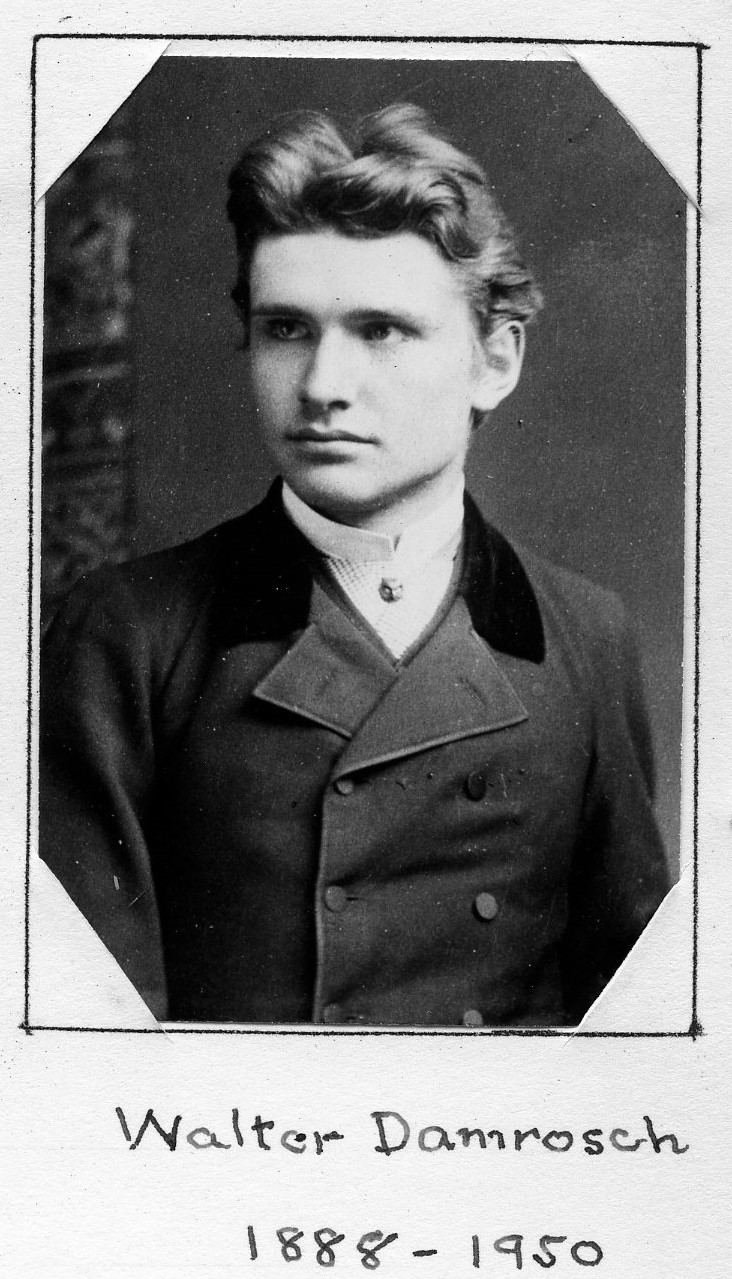Musical Director
Centurion, 1888–1950
Born 30 January 1862 in Wrocław, Poland
Died 22 December 1950 in New York (Manhattan), New York
Buried Ledgelawn Cemetery , Bar Harbor, Maine
, Bar Harbor, Maine
Proposed by E. Francis Hyde and John T. Johnston
Elected 2 June 1888 at age twenty-six
Archivist’s Note: Brother of Frank H. Damrosch; brother-in-law of Henry T. Seymour; father-in-law of Thomas Knight Finletter, Sidney Howard, Herman S. Kiaer, and Robert Littell; grandfather of Blaine Littell and Walter D. Littell; grandfather-in-law of Samuel Goldwyn Jr., John F. B. Mitchell, and Brian Edward Urquhart; great-uncle of Douglas S. Damrosch and Elena Mannes
Proposer of:
Seconder of:
Century Memorial
Walter Damrosch died on December 22, 1950. He was next to the senior member of the Century, having been elected in 1888 when he was twenty-six.
He was a magical figure—made of different stuff from other men. When he talked about music, it became fearfully exciting. It was almost like some miraculous drug. He was sure music was for everybody—everybody. When one was in adversity, it was a comfort. When one was happy, it was a universal language of joy and brotherhood.
He was right. And he devoted his life to spreading this gospel: with astounding success. He was so confident, so debonair, so much more urgent and forceful than the rest of us, that it is pleasantly reassuring to think he was not always thus. In 1883 his father was conducting the Metropolitan Opera Orchestra. He was a player in it, but was so paralysed with fright that he could not clash the cymbals at the proper time.
He was a promotor, a conductor, an impresario, a composer, a teacher and a musician, and he was first-class at each of these callings. In 1942 the Club meeting on April 2 was wholly devoted to observing his completion of four-score years. It was a marvellous party. The musicians of the Club played from the works of Beethoven, Debussy and Damrosch—mostly Damrosch—and the old gentleman himself sat at the piano and eclipsed them all. He had a wonderful time.
If there is a life to come, be sure we shall hear his voice there, and clasp his hand, and feel his magic once again.
George W. Martin
1951/1952 Century Association Yearbook


